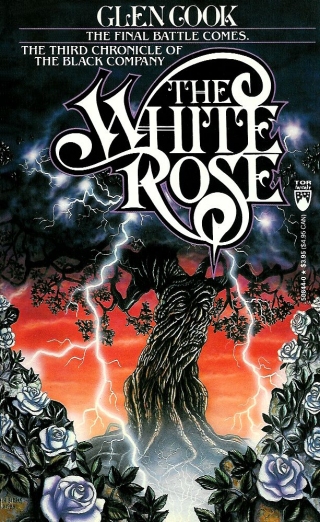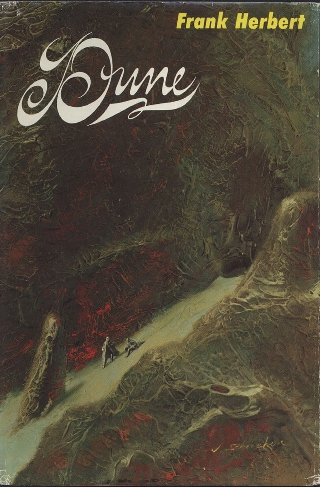On the bylines I’m 60 pages into “Everything and More: A Compact History of Infinity” by dear David Foster Wallace. I mentioned the page I’m at because this is a math book, but at least I can say I made so far without major blocks.
In fact this book is excellent. It’s filled to the brim, line by line, with ideas you can spin in every way. It’s deeply connected with everything I write about in this blog and that’s why it should be read. It’s not a book for who is interested about math, it’s a book for who is interested about asking radical questions on pretty much everything. For example it’s interesting the whole deal with the D.B.P. (abbreviation that DFW uses for “Divine Brotherhood of Pythagoras”). They deal with math as with a religion and their “discoveries” (or creations) become the foundation of what we are today. And then the V.I.R. (Vicious Infinite Regress), that recursive hell of infinite regression/mise en abyme. I’m reading the book while thinking about a different context, the stuff I’ve written about recently, and in many cases I was anticipating what DFW would write next. Circling again and again around similar patterns.
To apeiron, the primordial Void, the genesis of the world. This is a book about the mythology of math, and it is exciting to read. Often mindblowing. DFW selective gaze gives you what exactly matters, what makes your life different. It makes the mind race.
Maybe I’ll go quote intensive at some point. Right now I only want to copy over one I pasted over to Bakker’s blog because it repeats what was defined as “the widening gap between knowledge and experience”, and DFW describes this well:
Obvious fact: Never before have there been so many gaping chasms between what the world seems to be and what science tells us it is. ‘Us’ meaning laymen. It’s like a million Copernican Revolutions all happening at the same time. As in for instance we ‘know,’ as high-school graduates and readers of Newsweek, that time is relative, that quantum particles can be both there and not, that space is curved, that colors do not inhere in objects themselves, that astronomic singularities have infinite density, that our love for our children is evolutionarily preprogrammed, that there is a blind spot in our vision that our brains automatically fill in. That our thoughts and feelings are really just chemical transfers in 2.8 pounds of electrified pâté. That we are mostly water, and water is mostly hydrogen, and hydrogen is flammable, and yet we are not flammable. We ‘know’ a near-infinity of truths that contradict our immediate commonsense experience of the world. And yet we have to live and function in the world. So we abstract, compartmentalize: there’s stuff we know and stuff we ‘know’. I ‘know’ my love for my child is a function of natural selection, but I know I love him, and I feel and act on what I know. Viewed objectively, the whole thing is deeply schizoid; yet the fact of the matter is that as subjective laymen we don’t often feel the conflict. Because of course our lives are 99.9% concretely operational, and we operate concretely on what we know, not on what we ‘know’.
Small addendum:
to apeiron is also the computational limit. This is linked to the idea of determinism and closed system. Here DFW talks of the relationship with god, as if math is the language of god, but it is interesting to think about this in systemic terms. There’s also this piece from Bakker and the speculation of math as the shadow projected by an unknown kernel.
And this:
The point being that the D.B.P.’s attempts to articulate the connections between mathematical reality and the physical world were part of the larger project of pre-Socratic philosophy, which was basically to give a rational, nonmythopoetic account of what was real and where it came from. Maybe even more important than the D.B.P., infinity-wise, is the protomystic Parmenides of Elea (c.515-? BCE), not only because his distinction between the “Way of Truth” and “Way of Seeming” framed the terms of Greek metaphysics and (again) influenced Plato, but because Parmenides’ #1 student and defender was the aforementioned Zeno, the most fiendishly clever and upsetting Greek philosopher ever (who can be seen actually kicking Socrates’ ass, argumentatively speaking, in Plato’s Parmenides).
Interesting on one side because that dichotomy is one I mentioned recently. And, more in general, because if we see math as the foundation of science, then it means we’re basically observing how the myth of reality, as we know it, came to be. The mythopoetic origin of science. The disguised gods we all worship in modern times.
DFW declares the ultimate “hope”:
Most of math’s definitions are built up out of other definitions; it’s the really root stuff that has to be defined from scratch. Hopefully, and for reasons that have already been discussed, that scratch will have something to do with the world we all really live in.
But in that interview he gave after the book was published he said:
Infinity was the great albatross for math. Really ever since calculus. Infinitesimals were horseshit, and everybody knew they were horseshit. But the limits thing used natural language stuff like ‘approaches,’ which math isn’t supposed to do. So it’s this great shell game. Weierstrass, Dedekind and Cantor close all those holes, and it’s beautiful, and at the same time they open what turns out to be a much worse one, and that’s Godel. . . .
After Godel, the idea that mathematics was not just a language of god but a language we could decode to understand the universe and understand everything, I mean, that doesn’t work any more. It’s part of the great postmodern uncertainty that we live in. Very few people know about it.
To me, that’s the fil rouge (main theme, common thread, guiding light) connecting everything. Godel paradox is fundamental in Bakker’s studies and theories about the brain, as it is for science and the way we conceive the universe. It’s the fundamental postmodern crisis we live in today. And it’s in the writer/creation relationship. Simulated worlds. The dreams and illusory worlds that you enter the moment you start sleeping and that the brain feeds you, barriers you can’t cross. All this is about the fundamental dualism, and Vicious Infinite Regress, due to the self-reliance and reflexivity, or “strange loops”. Explain one, and you’ve explained Everything.
to apeiron, is again the Greek term that defines the seed of chaos. Uncertainty. Uncertainty that encapsulates the world we live in today that was born from the seed planted by our Greek ancestors.
Anaximander (610-545 BCE), the first of the pre-Socratics to use the term in his metaphysics, basically defines it as “the unlimited substratum from which the world derived”.
DFW again:
Note, please, that this lay ability to split our awareness and to ‘know’ things we cannot handle is distinctively modern. The ancient Greeks, for example, could not do it. Or wouldn’t.



